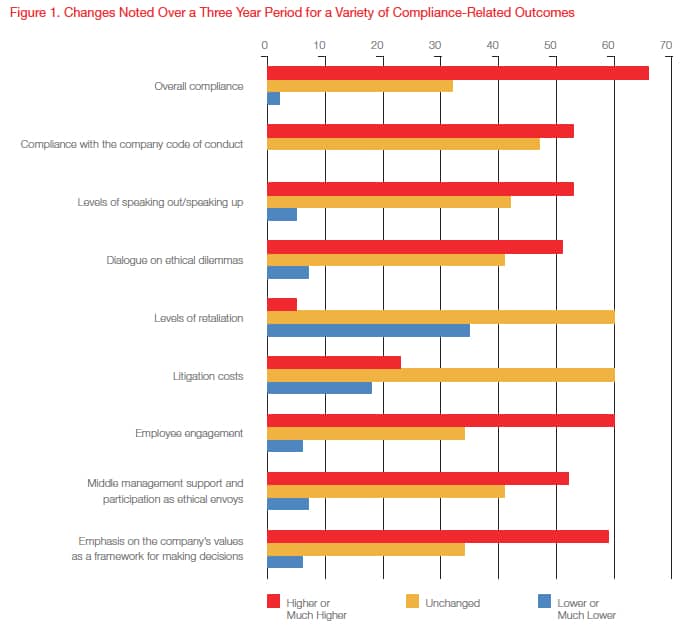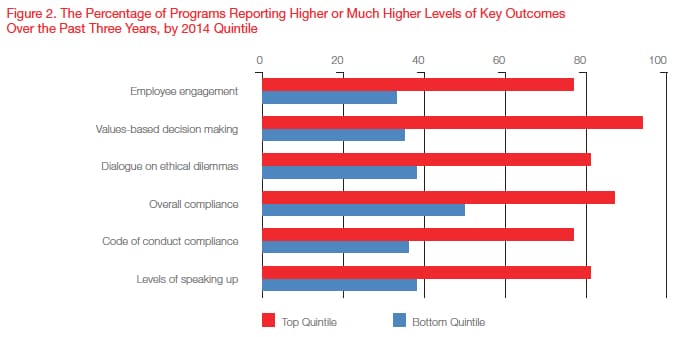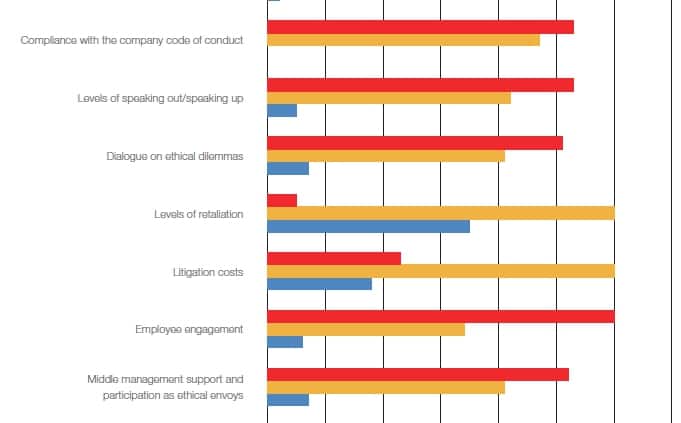Report: Compliance Program Effectiveness Index
Culture and ethics advisory firm LRN has released its annual report on compliance program effectiveness, correlating a measure it calls PEI with observed outcomes over the last three years.

As you can see from Figure 1, about two-thirds of companies surveyed reported positive changes in overall compliance-related outcomes over a three-year period. However, there is still room for improvement, particularly in the areas of retaliation against employees and litigation costs.

From Figure 2 we observe that the top quintile of compliance programs as measured by PEI are more likely to see higher levels of outcome improvement than the bottom quintile by wide margins. This tells us that LRN’s index is capturing something important about the qualities of effective compliance and ethics regimes. You can read the full report for details, but one finding that stands out is the fact that programs led by an individual reporting directly to either the CEO or the Board of Directors substantially outperform those reporting to the general counsel. As we have noted on our Leadership page, “tone from the top” is crucial for the ethical orientation of a company. However, the active engagement of middle managers and team leaders (who interface directly with employees) is at least as important: LRN’s data reveal that compliance programs are even more effective when top executives are backed up by “tone from the middle.”
Organizations interested in ethical systems design should pay close attention to this report and others like it. As the science continues to advance, and robust key performance indicators are developed, companies will be increasingly able to fine-tune their compliance programs, management styles, and ethical cultures for the betterment of their stakeholders and the broader business climate.




